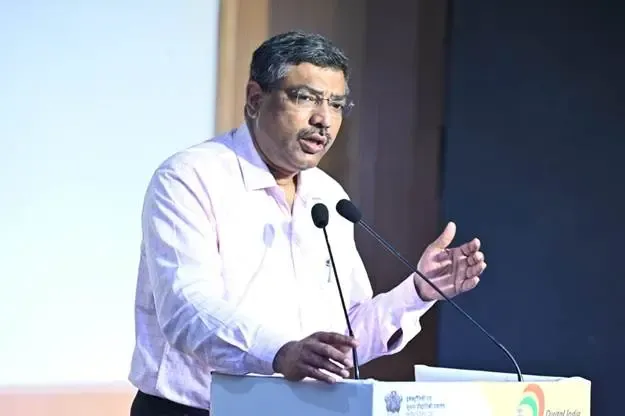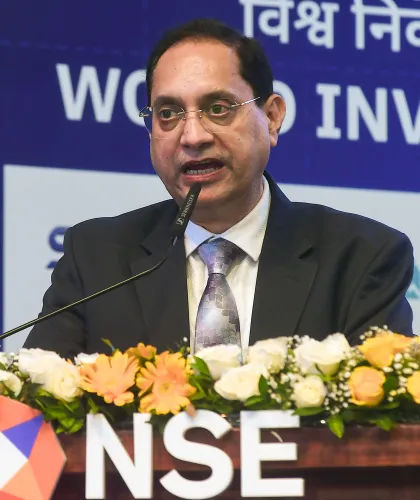How Can Notices to Intermediaries Be Streamlined to Combat Unlawful Information?

Synopsis
Key Takeaways
- Standardization of notices is essential for effective digital governance.
- Legal clarity is pivotal in combating unlawful information.
- Section 79 of the IT Act highlights intermediaries' responsibilities.
- The government must exercise its powers prudently.
- Judicial scrutiny is a critical aspect of digital policy enforcement.
New Delhi, Oct 8 (NationPress) The government has asserted that notices directed towards social media intermediaries need to be standardized and incorporate fundamental aspects such as pertinent legal clauses, clarity, and uniformity to effectively combat unlawful information.
With the rapid expansion of digital platforms, there has been a notable increase in unlawful content across IT intermediaries and social media sites, breaching various legal norms.
To address this issue, Section 79(3)(b)IT Act, 2000 authorizes relevant Ministries, Departments, and State/UT bodies to issue notices to IT intermediaries, instructing them to eliminate or restrict access to such content.
In this regard, the IT Ministry organized a workshop aimed at educating participants about key provisions of the IT Act, 2000, and IT Rules, 2021, particularly Sections 69A and 79(3)(b), along with Rule 3(1)(d).
The goal was to foster a clear understanding of their implementation in promoting responsible digital governance and effective content oversight.
MeitY Secretary S. Krishnan elaborated on the scope and intentions of the IT Act. He noted that Section 69A empowers the government to block online content that poses risks to national security, public order, or friendly relations with foreign nations.
“Conversely, Section 79 alerts intermediaries regarding their responsibilities and potential liabilities in cases of non-compliance, while the ultimate decision lies with the judiciary,” he remarked.
He emphasized the necessity for an appropriate format — notices under Section 79(3)(b) should not mimic the directives of Section 69A, given that the scopes of both provisions differ significantly.
The language used should be precise along with relevant legal references. He added that the appropriate government or its agency, as the guardians of authority, must execute their powers judiciously.
In essence, these powers must be utilized in a careful manner to withstand judicial scrutiny while also respecting the fundamental rights guaranteed by the Constitution of India, Krishnan stated.
Ajit Kumar, Joint Secretary (Cyber Laws), pointed out the growing challenges posed by fake news, misinformation, and the abuse of information technology.
He observed that inadequacies in notices often lead to judicial disputes, highlighting the necessity for a thorough and standardized approach in their drafting.









